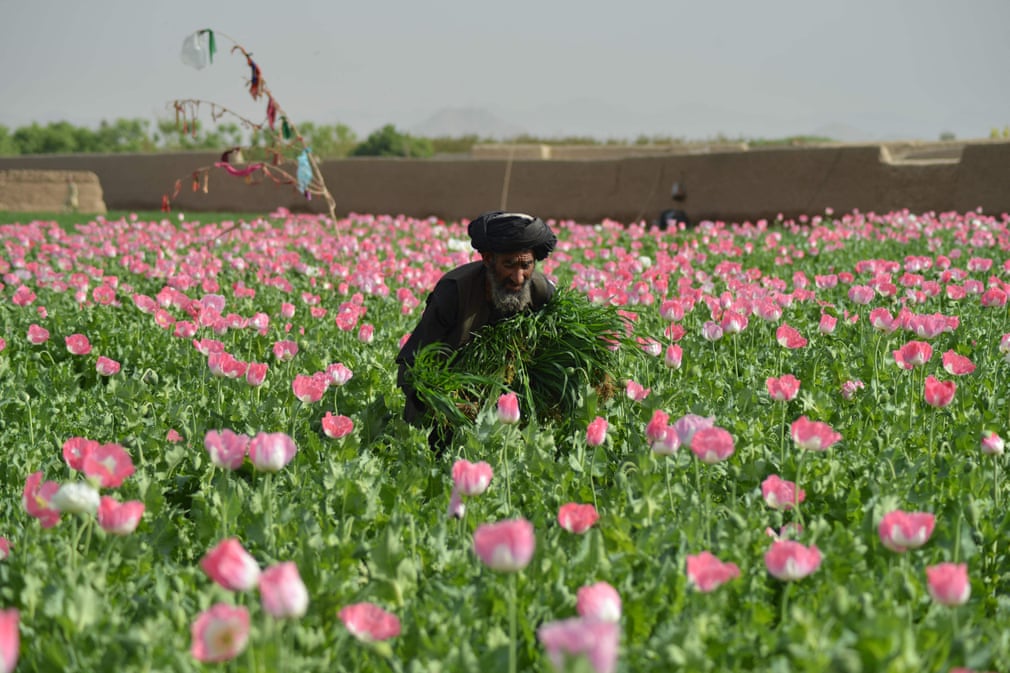Install the app
How to install the app on iOS
Follow along with the video below to see how to install our site as a web app on your home screen.
Note: This feature may not be available in some browsers.
You are using an out of date browser. It may not display this or other websites correctly.
You should upgrade or use an alternative browser.
You should upgrade or use an alternative browser.
Afganistan
- Viestiketjun aloittaja Teräsmies
- Aloitus PVM
-
- Tagit
- afganistan
Taisi tulla väärään ketjuun mutta hyvä viesti.(delete - väärä ketju taas: anteeksi modet)
EXLT2
Kapteeni
Poliisiopisto. Seremonian jälkeen päivätanssit poikien kesken Blue oyster kahvilassa.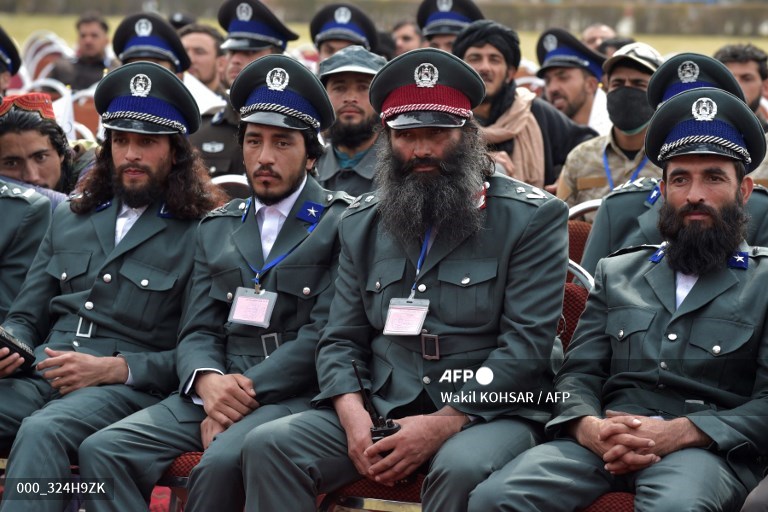
"Taliban members attend a graduation ceremony for newly police recruits at the police academy in Kabul on March 5, 2022."
A detainee at a secret CIA detention site in Afghanistan was used as a living prop to teach trainee interrogators, who lined up to take turns at knocking his head against a plywood wall, leaving him with brain damage, according to a US government report.
The details of the torture of Ammar al-Baluchi are in a 2008 report by the CIA’s inspector general, newly declassified as part of a court filing by his lawyers aimed at getting him an independent medical examination.
Baluchi, a 44-year-old Kuwaiti, is one of five defendants before a military tribunal on Guantánamo Bay charged with participation in the 9/11 plot, but the case has been in pre-trial hearings for 10 years, mired in a dispute over legal admissibility of testimony obtained after torture.
According to the inspector general’s report, the CIA was aware that the 2003 rendition of the detainee, Ammar al-Baluchi, from Pakistani custody to the “black site” north of Kabul was conducted “extra-legally,” because at the time he was in Pakistani jurisdiction and no longer represented a terrorist threat.
The report said that interrogators at the site, known both as Cobalt and the Salt Pit, went beyond the CIA’s guidelines in torturing Baluchi, using two techniques without approval: using a stick behind his knees in stress position that involved leaning back while kneeling, and dousing with ice-cold water.

CIA black site detainee served as training prop to teach interrogators torture techniques
Newly declassified documents reveal Ammar al-Baluchi was repeatedly slammed against a wall while naked until all trainees received ‘certification’
Taas oksettaa, dokumentit ja lisää linkin alla. Ymmärrän nyt miksi CIA yritti pitää tämän salaisena ja miksi se tulee ulos nyt kun maailman huomio on ukrainassa kiinni.
Alka Pradhan, one of his lawyers said: “If the CIA had not hidden their own conclusions about the illegality of Omar’s torture for this long, the US government would not have been able to bring charges against Ammar because we now know that the torture inflicted on Ammar led to lasting brain damage in the form of a traumatic brain injury and other debilitating illnesses that cannot be treated at Guantánamo Bay.”
Olympiakasarmi
Kenraali

Taleban laittoi tyttökoulut kiinni Afganistanissa, ehtivät olla auki vain tunteja: ”Oppilaat itkevät eivätkä halua lähteä luokasta”
Tyttöjen pääsy kouluun on ollut länsimaiden keskeinen ehto sille, että maahan toimitetaan ulkomaista apua.
“I believe hope is not all lost. I am hopeful we will see a reversal of that decision in the coming days.”
But West defended the US engagement with the Taliban saying that a complete diplomatic rupture would mean abandoning 40 million Afghans amid growing concerns over a possible famine in the country.
“We are talking about the modalities of an urgent humanitarian response, the need for more than a humanitarian response, a policy not just an admire the problem of a broken banking sector but find ways to fix it, a professionalisation of the Central Bank so that the international financial community can begin to have confidence in it, we are talking about terrorism and we are talking about women’s rights.
“One of the first times we sat down in October in a formal setting they had a request of us ‘please put our civil servants – 500,000 – back to work’. We thought a logical place to start given the sector resonated so much in the international community was education. We had requests of them, as well. Number one, women and girls could attend at all levels across large swathes of Afghanistan. Number two we wanted to see a monitoring mechanism and third there be a serious and rigorous curriculum. Over the following the months the international community receive the necessary assurances, and more importantly the Afghan people were told on March 23 we would see girls attend secondary education and that did not occur.”

Taliban reversal on girls’ education derails US plan for diplomatic recognition
Joint event had been planned ahead of Doha Forum that would have set process in motion to grant group diplomatic recognition
Olympiakasarmi
Kenraali
Saas nähdä miten tällä kertaa toimii.

arix
Respected Leader
Tuo toimi jotenkin edellisellä kerralla.Saas nähdä miten tällä kertaa toimii.


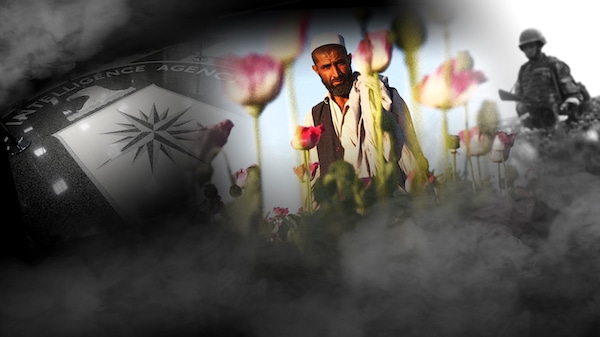
Geopolitics, profit, and poppies: how the CIA turned Afghanistan into a failed narco-state | MR Online
The war in Afghanistan has looked a lot like the war on drugs in Latin America and previous colonial campaigns in Asia, with a rapid militarization of the area and the empowerment of pliant local elites.
rty19
Greatest Leader
Talibanin johtaja määräsi naiset käyttämään burkhaa Afganistanissa
Naisten pitää käyttää kasvot ja ja vartalon peittävää asua julkisilla paikoilla.
Taliban authorities in Afghanistan dissolved five key departments of the former US-backed government, including the country’s human rights commission, deeming them unnecessary in the face of a financial crunch, an official said.
Afghanistan faced a budget deficit of 44bn Afghanis ($501m) this financial year, Taliban authorities said as they announced their first annual national budget since taking over last August.
“Because these departments were not deemed necessary and were not included in the budget, they have been dissolved,” said Innamullah Samangani, the Taliban government’s deputy spokesperson.
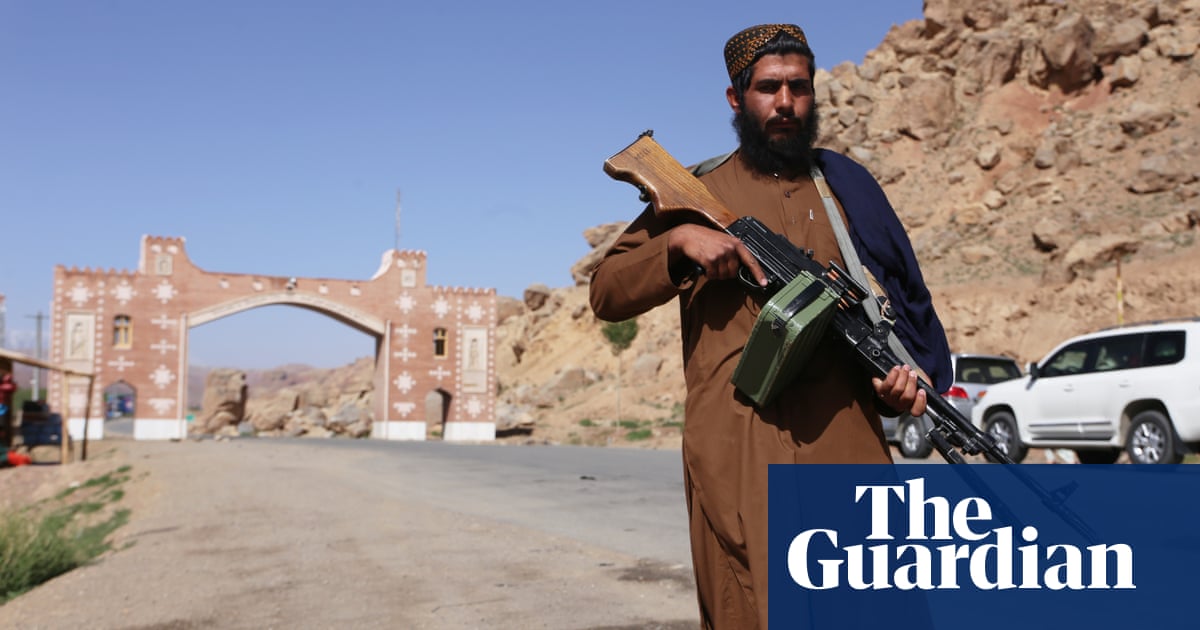
Taliban dissolves Afghanistan’s human rights commission as ‘unnecessary’
Four other government departments scrapped as cash-strapped regime faces $500m budget deficit
rty19
Greatest Leader
Afganistanin naisankkurit eivät suostu peittämään kasvojaan tv-lähetyksissä – esiintyjät uhmasivat Taliban-hallinnon uutta kieltoa
Tv-ankkurit esiintyivät tänään ilman huntua muutamilla isoilla tv-kanavilla uudesta määräyksestä huolimatta. Yhä uusiin ohjeisiin alistuminen tietää naisten mukaan lisää rajoituksia ja jopa töiden loppumista.
Ketju YK:n raportista koskien talebaneja.
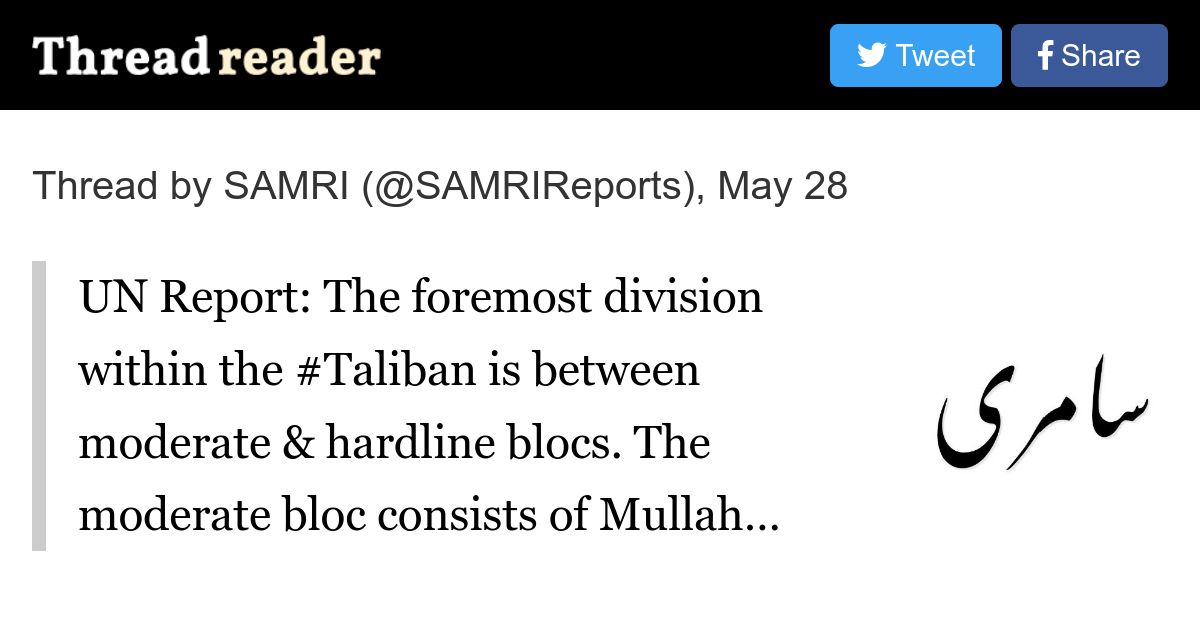
 threadreaderapp.com
threadreaderapp.com

Thread by @SAMRIReports on Thread Reader App
@SAMRIReports: UN Report: The foremost division within the #Taliban is between moderate & hardline blocs. The moderate bloc consists of Mullah Baradar, Abbas Stanekzai, Padshah Khan & Shahabuddin Delawar who believe...…
Though his President and Defense minister fled hours earlier, and with the Taliban fast approaching Kabul, Haibatullah Alizai was not ready to surrender.
It was the evening of Aug. 15, 2021. Alizai, a lauded special operations commander, had been given control of Afghanistan's remaining army just days before. And now he was trying to convince the American Navy SEAL two-star admiral in charge of Kabul security to let him declare martial law and allow his small band of the best troops remaining in Afghanistan to keep the Taliban from entering the city.
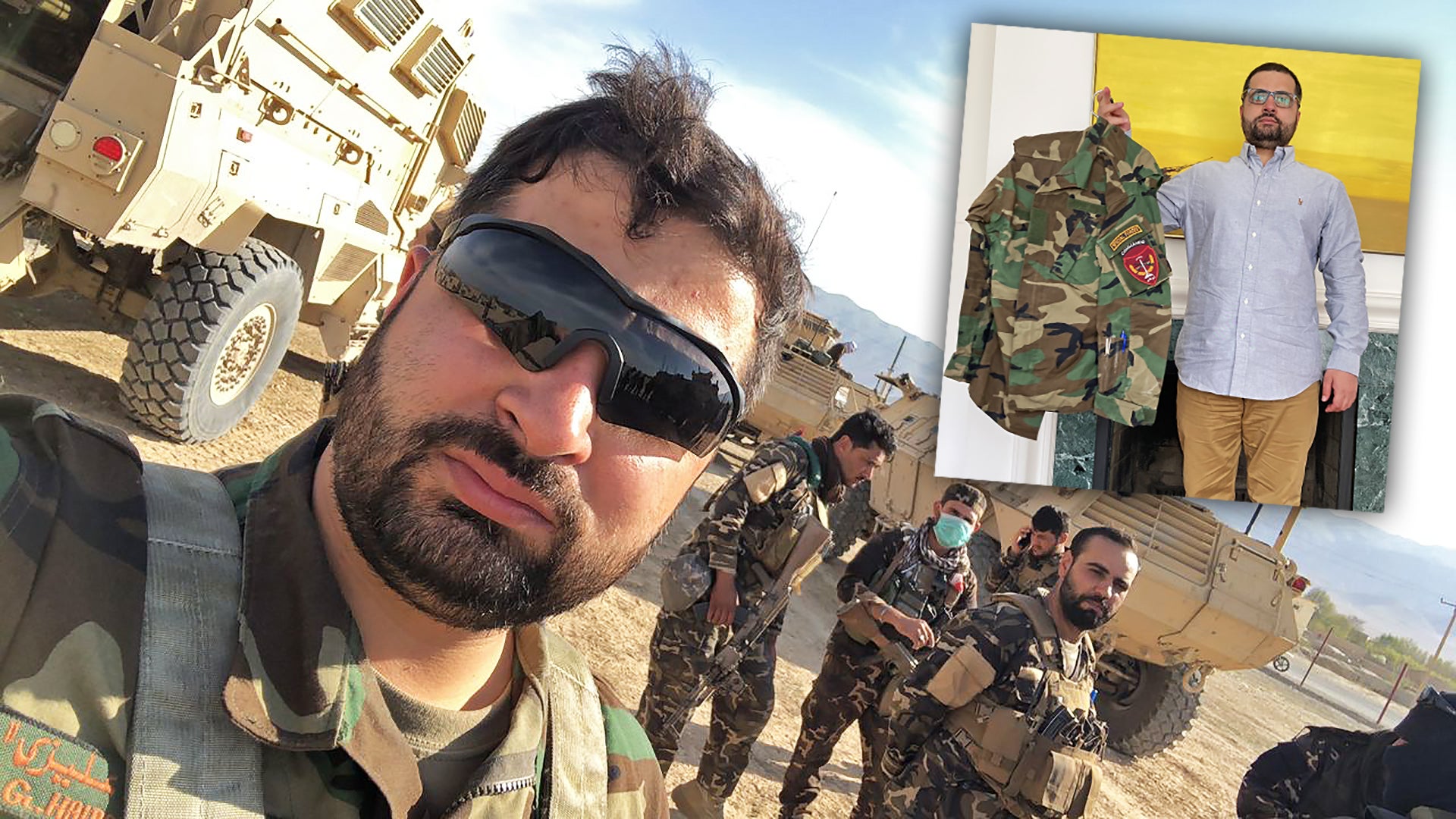
The Afghan Army's Last Commander On How His Country Really Fell
Haibatullah Alizai recounts the final five harrowing days of his government and how he reluctantly became the Afghan Army's last general.
Human rights groups are urging the UN to end a Trump-era waiver that allows Taliban members most responsible for the oppression of women in Afghanistan to travel abroad.
In a test for the international community’s willingness to isolate the Taliban, critics argue that those Taliban members curtailing women’s right to leave their homes within Afghanistan should at minimum be banned from leaving their country.
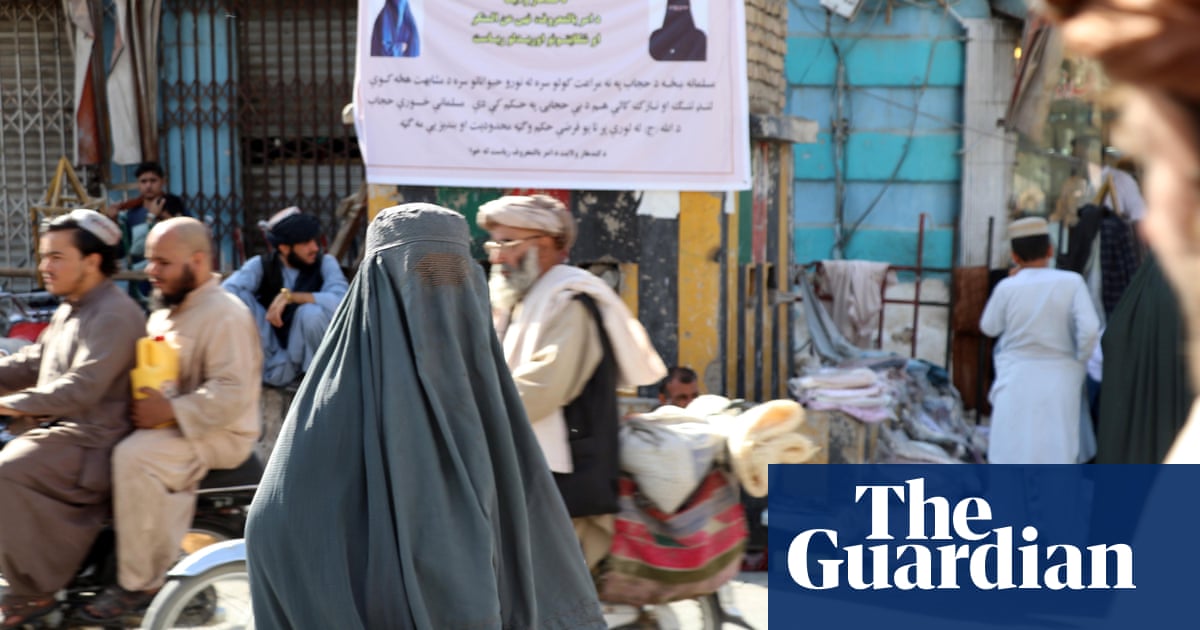
UN urged to impose travel ban on Taliban leadership over oppression of women
Campaigners say curtailing of women’s rights in Afghanistan means Trump-era waiver must be removed
“It’s a false dichotomy to suggest that ending the travel ban exemption means giving up on engaging the Taliban. It’s time for governments to turn consensus that the Taliban’s actions are unlawful into coordinated actions that show the Taliban that the world is ready to defend the rights of Afghans, particularly women and girls, in meaningful ways.”
The former Swedish foreign minister Margot Wallström has come out in support of the move, saying: “The longstanding UN ban on travel for Taliban leaders carries a waiver for some of them. Meanwhile, Afghan women can hardly leave their homes. The travel ban exemption should not be renewed without conditions: real progress for Afghan women and girls.”
Annie Pforzheimer, a former deputy chief of the US mission to Kabul, has also urged the state department to act. “Suspending the travel ban has allowed the Taliban to pursue the diplomatic recognition it craves, setting in motion the creeping normalisation of an authoritarian and extremist movement that other groups will emulate.”
More than 170 people who worked for the British embassy in Kabul remain in hiding in Afghanistan in fear for their lives, almost a year after the Taliban retook the country.
A list of Afghans currently in hiding, seen by the Guardian, shows almost 200 former interpreters, security guards and local staff waiting for a response from the Ministry of Defence and the Home Office, the departments responsible for relocating people at risk. All of those on the list are eligible for transfer to the UK under the Afghan relocations and assistance policy (Arap), intended to bring those formerly employed by the UK government, and their family members, to safety in Britain.
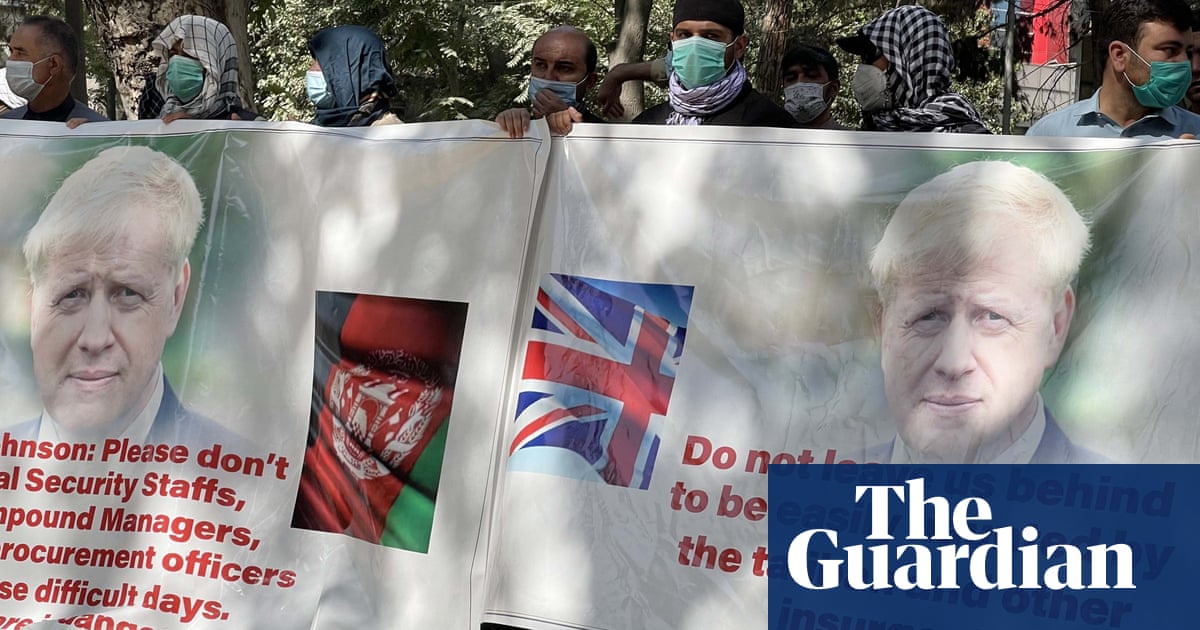
Afghan embassy staff remain in hiding despite being eligible for UK relocation
UK government accused of leaving former employees and their families ‘in limbo’ in Afghanistan, where they are targets for the Taliban
“Every time we receive a message from the MoD, they say to wait. More than 10 months we are waiting. We hoped the British government would help us but they have done nothing – they have left us alone here to die.”
As I write, rescuers are still searching the remains of a shopping centre in the central Ukrainian town of Kremenchuk. There were hundreds of people inside the centre when Russian missiles hit it on Monday. The number of casualties is still unclear, but there are 20 confirmed deaths and tens of unidentified bodies. The mall was miles away from any military target. There could be no other reason to attack it than to spread fear and terror in Ukraine. The Russian military hit it with two missiles, ensuring devastating damage.
G7 countries unanimously condemned those attacks, as they should. But unless the world puts a meaningful political and legal definition to these atrocities, such condemnations will very quickly be forgotten by the general public. The world needs to comprehend that along with a ruthless military operation Russia conducts indiscriminate attacks on non-military targets: this is terrorist activity. We need to distinguish it and qualify it as such.
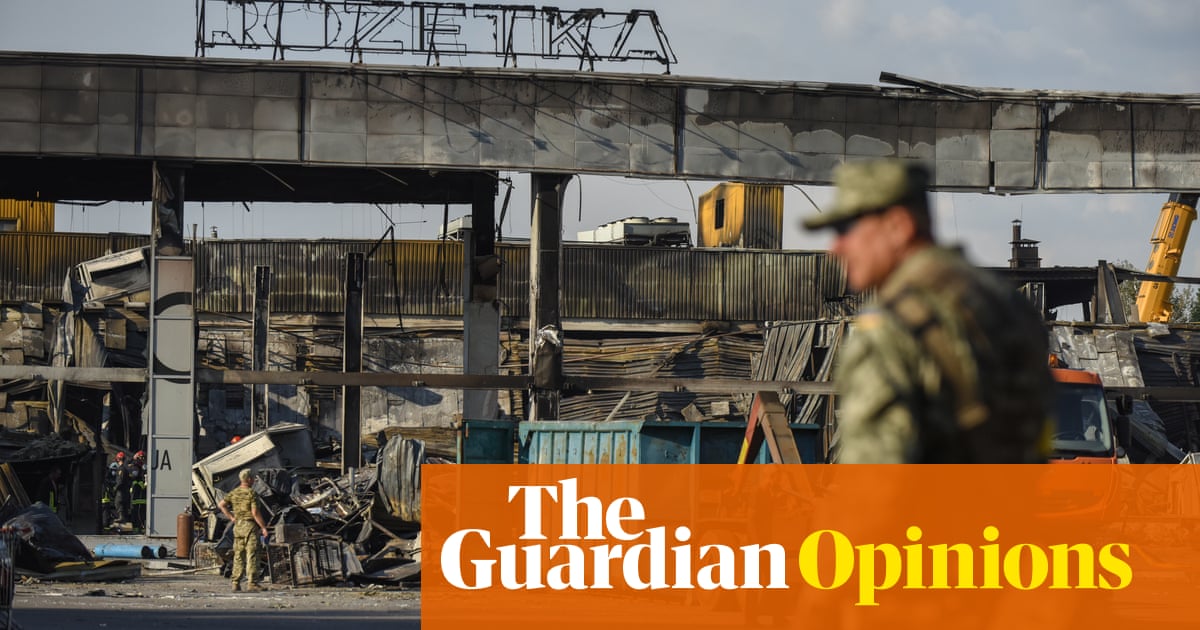
Putin’s war is also a crime – the world must punish Russia as a terrorist state | Andriy Zagorodnyuk
After airstrikes on civilian targets, Ukraine’s allies must use the correct legal definitions, says the former Ukrainian defence minister Andriy Zagorodnyuk
Recognising Russia as a terrorist state is not just a political statement: it also has substantial legal consequences. No one in the west will do business with terrorists. The respective government and business policies exist in almost every corporate code of conduct or democratic state law. That recognition would help stop Russia from making the financial revenue necessary to keep funding the war. It would significantly undermine the Russian war effort – not soon, but in the long run.

